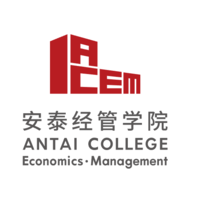With more professionals chasing dreams of building a career in China—Shanghai alone houses 200,000 international residents—the country is building a reputation as one of the world’s most exciting locations for MBA students.
According to a recent report from the Graduate Management Admission Council (GMAC), MBA programs in the country have also reported growth in the last year. Among 22 responding programs in the country, 41% saw growth in international applications, with a further 23% reporting stable international applications.
One top Asian MBA program is the International MBA program offered by Antai, based in Shanghai—and it was here that Anais Pothon decided to pursue her dreams of working in China.
After graduating with a bachelor’s degree in International Hospitality Management in 2014, Anais worked in various hotels in Switzerland and Cambodia, before finally relocating to China. After two years in the country, she knew she wanted to stay—but there was a catch.
She knew she needed to deepen her knowledge of business in China, improve her Mandarin, build her network, and gain experience of industries beyond hospitality. “I therefore decided to offer myself a one-year break dedicated to learning.,” she says.
While there are a host of MBA programs in the country, and elsewhere in Asia, Anais chose Jiao Tong’s because of the university’s historic status—it’s regarded as the one of the oldest universities in China and was founded in the 19th century—and its vigorous academic MBA curriculum, which offered Anais the chance to “interact with both multinationals and local companies,” she says.
Studying the Antai MBA

The MBA at the Antai College of Economics and Management is consistently ranked among the best in the world by the Financial Times and the school offers an extensive curriculum focusing on global business and business in China.
Over the two-year program, students cover topics including international marketing, business law, doing business in China, project management, and business ethics.
Out of all the classes, Anais cites the corporate social responsibility module as one of her favourites—a “mind-blowing” two-week class dedicated to sustainability, and how to embody CSR into decision-making, she says.
Between classes, students at Antai have the opportunity to meet local companies in the city face-to-face during company visits, as well as offering trips to local areas of cultural interest so students can really immerse themselves in Chinese culture.
“Antai is very supportive from the start in maximizing each student’s exposure to opportunities,” Anais explains. “Whether these are job fairs, online portals, or competing in cultural and professional prizes.”
Despite the program’s focus on China, students on the course can also benefit from a varied and multicultural class. A significant number of the 2017 MBA class came from China, with 43% of students hailing from North America and a further 14% from Europe.
MBA jobs in Shanghai

While finishing up her MBA internship at the French Chamber of Commerce and writing her final thesis, Anais was lucky enough to be offered a full-time position as a client relations manager at IMA Asia in Shanghai, a company that brings together peer groups of CEOs and business leaders in Asia.
“We discuss macro trends and strategies that influence multinationals’ performance in China,” Anais explains. “The position requires a strong knowledge of the business environment and how multinationals are operating, with a focus on China.”
Anais cites her MBA from Jiao Tong University as one of the reasons for her success in landing this position—but explains that there are more factors that affect graduate success in China.
As one of China’s fastest growing cities, and the world’s fifth-largest financial hub, there are numerous opportunities for budding MBAs in Shanghai, but Anais says that success in the city is down to making the most of that unique business environment.
“I would not have had the necessary knowledge without the MBA. Ultimately, I needed to expand broader than hospitality,” Anais reflects.
“I would encourage international students considering studying in Shanghai to engage in the very dynamic local entrepreneurial scene in the city, by participating in startup weekends or interning with a startup,” she continues.
Other tips Anais gives are to gain an understanding of Mandarin, and also make time to travel to other provinces in China, as, she says, “Shanghai is not totally representative of China!
“As in any other big city, living in Shanghai gives a lot of opportunities,” Anais reflects. “Studying an MBA here gave me a China-based network and strong friendships, and I would never have my current job if it wasn’t for my MBA.”
Student Reviews
Shanghai Jiao Tong University: Antai








